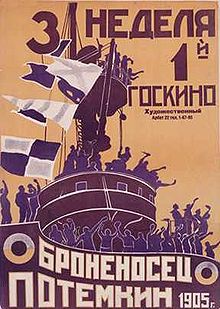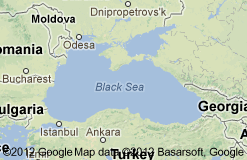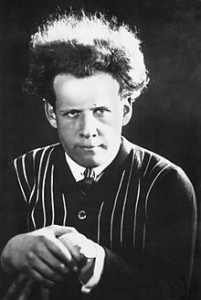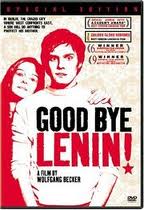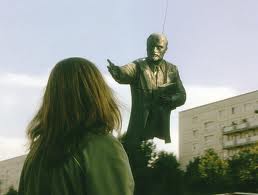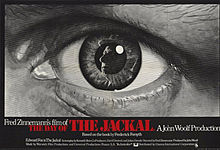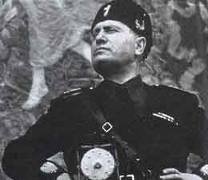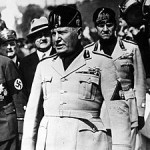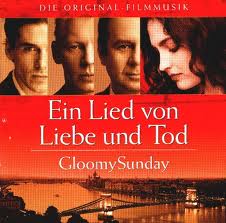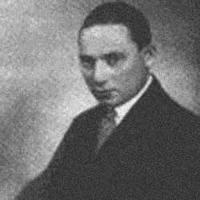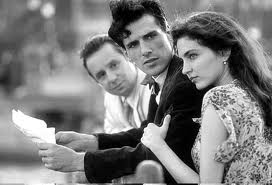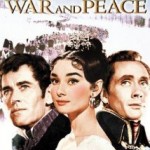 In 1938, Regina—a Jewish girl living in Germany—goes with her mother Jettel to Kenya, a territory of Great Britain at that time, to escape Nazi persecution and join her father Walter who had already moved there. Walter was a lawyer in Germany, but he now lives in a poor house and works within the unfamiliar realm of agriculture as a farm manager of some land owned by a British colonist. Regina befriends Owuor, the family cook, and adapts to life in Kenya in no time, but Jettel can’t accept the reality and complains to her husband, so Jettel and Walter argue often. In 1939, Britain and Germany finally start fighting; Walter’s family is sent to an internment camp and Walter is fired from his job as a farm manager because he and his family are people of an enemy nation. However, the Jews in Kenya persuade the British government that the Jews being persecuted by the Nazis are not the enemy of Britain, and in the end the Jews are released from internment camps.
In 1938, Regina—a Jewish girl living in Germany—goes with her mother Jettel to Kenya, a territory of Great Britain at that time, to escape Nazi persecution and join her father Walter who had already moved there. Walter was a lawyer in Germany, but he now lives in a poor house and works within the unfamiliar realm of agriculture as a farm manager of some land owned by a British colonist. Regina befriends Owuor, the family cook, and adapts to life in Kenya in no time, but Jettel can’t accept the reality and complains to her husband, so Jettel and Walter argue often. In 1939, Britain and Germany finally start fighting; Walter’s family is sent to an internment camp and Walter is fired from his job as a farm manager because he and his family are people of an enemy nation. However, the Jews in Kenya persuade the British government that the Jews being persecuted by the Nazis are not the enemy of Britain, and in the end the Jews are released from internment camps.
Regina and Jettel are sent to a high-class hotel in Nairobi being used as an internment camp; German women sent there receive top-class hospitality. I think such a thing happened because in Kenya during those days, white people and native people lived in different areas, and a white woman even of an enemy nation couldn’t be sent to a place where native people stayed; this situation suggests that Kenya had a hidden apartheid in those days.
 With the help of a British officer who favors the beautiful Jettel, Walter is able to find a new British employer and his family moves to the farm. Owuor also moves with them and begins a new life under better conditions. Walter is allowed to volunteer as a British soldier, and participates in the war despite Jettel’s objection. Regina starts studying at a boarding school for Britons. While Walter is at war, Jettel starts enthusiastically working at the new farm, and Walter becomes suspicious that Jettel may have a relationship with one of his close friends, Süsskind. In fact, Süsskind was courting Jettel.
With the help of a British officer who favors the beautiful Jettel, Walter is able to find a new British employer and his family moves to the farm. Owuor also moves with them and begins a new life under better conditions. Walter is allowed to volunteer as a British soldier, and participates in the war despite Jettel’s objection. Regina starts studying at a boarding school for Britons. While Walter is at war, Jettel starts enthusiastically working at the new farm, and Walter becomes suspicious that Jettel may have a relationship with one of his close friends, Süsskind. In fact, Süsskind was courting Jettel.
The war ends with a victory for Britain. Since Walter served in the British army, he can return to his home country as a veteran, and he receives an offer from Germany to work as a judge. While Walter wishes to return to his home country, Jettel insists on staying in Africa. The movie ends with the two making their decisions.
This movie offers an interesting point of view on how one chooses their homeland during war and when faced with racial persecution; it is a pretty good movie, but some viewers may be puzzled by and feel uncomfortable with how Jettel is depicted. When she first arrives in Kenya, she shouts at Walter, “I’d rather die than live in such a place!” Walter criticizes her attitude of looking down on Owuor, saying, “Your attitude toward Owuor is like that of a Nazi toward a Jew.” She complains that, “It is unbelievable that we can’t eat meat,” but when Walter reluctantly shoots a deer in response to this, Jettel reproaches him with, “You killed an animal!” Although she seems to hate Kenya so much, when Walter is allowed to return home and he suggests to her that they help rebuild their home country, she refuses to go saying, “The country that killed our family cannot be trusted.” However, when she learns that she is pregnant, she agrees to return home, saying that, “The people in this country are scary.” Also, wherever she goes, she is aware that she attracts the attention of men, and her daughter Regina actually sees her mother’s affair.
The inconsistency in Jettel’s personality in this movie is caused by there being three points of view: one from the eye of the original author Stefanie Zweig as a child (depicted by Regina in the movie); another from the eye of the adult Stefanie Zweig through her autobiographical writing about becoming an adult; and the last from the director Caroline Link when making the book into a movie.
It is not that Stefanie Zweig disliked her mother, but in the original autobiography, she always recollects her as something like a spoiled Jewish princess. Growing up, Zweig’s character formation was influenced by her father (Walter) who always faced life’s challenges with a positive attitude, her cook (Owuor) who had unlimited love, and the British boarding school she went to.
In the movie, the father Walter is performed by the handsome young actor Merab Ninidze, who was born in Georgia—a former Soviet Union territory—and immigrated to Austria. Stefanie Zweig extensively stated in an interview, “I was surprised because Merab looked just like my father. His physical features and the strong and ardent way of living looking forward despite having sorrow and nostalgia in his heart are exactly like my father. He has an Eastern German accent and speaks the same German as my father.” On the other hand, she simply said that the actress who played her mother “was nothing like” her mother, and she did not talk about what kind of person her mother was.
In regards to Owuor, Zweig stated that the reason she wrote her autobiography was to record the wonderful and generous person who was the model for Owuor. Although in the movie Jettel dramatically says, “I will protect the farm,” when Walter tells her, “Live in Nairobi during my military service,” it seems that Zweig’s mother actually moved to Nairobi while her father went to the battlefield. Unlike the movie, it seems that the cook left his hometown and moved to Nairobi with the mother to take care of her.
For the little girl Regina, her father and mother are such a constant part of her life, like the sun or the earth, that she would never even consider there being any story to tell about the relationship between her parents. However, director Caroline Link made this movie as a love story. Merab Ninidze who performed Walter stated the following: “One day, the director reprimanded me, saying, ‘Wrong, this movie is a love story!’ From then, I understood the interpretation of this movie and decided how to perform this role.”
In other words, Merab Ninidze at first interpreted this movie to be more political. However, Caroline Link’s intention was to reconstruct the movie to be, “a drama that depicts a princess like Jettel, who is raised by an affluent Jewish family, becoming an independent woman on African land, while mixing in some elements of a love story.” This angle is a big shift from the point of view of a little girl who open-mindedly accepts African land for what it is and enjoys her life there. The shift of the main focus to Jettel, with the intention of projecting the director’s philosophy on female independence and love relationships onto Jettel, results in the inconsistency in her character in the movie.
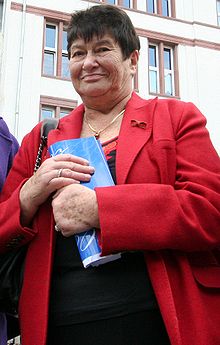 When I read Stefanie Zweig’s writings, it was interesting to see what various circumstances were not depicted in the movie. When asked why Jews didn’t escape Germany, Zweig suggested that it is possible that many Jews were not able to gather the large amount of money needed in those days to leave the country. There is no strong reason that her father escaped to Kenya, but rather it was likely because entry to the country cost only 50 pounds per person, Nairobi has a strong Jewish community, and Kenya is a relatively safe place.
When I read Stefanie Zweig’s writings, it was interesting to see what various circumstances were not depicted in the movie. When asked why Jews didn’t escape Germany, Zweig suggested that it is possible that many Jews were not able to gather the large amount of money needed in those days to leave the country. There is no strong reason that her father escaped to Kenya, but rather it was likely because entry to the country cost only 50 pounds per person, Nairobi has a strong Jewish community, and Kenya is a relatively safe place.
In Kenya, the father started his new job as a middle manager within the colonial governing system already established, and didn’t have to start from scratch. In other words, he held a middle management position in the white, British organization of the colony. It is understandable for Jettel to want to remain in Kenya—as long as there is work on the farm—since income and social status are guaranteed, she can have servants, and her work is supervising the native laborers as part of the ruling class. But as for Walter, it is understandable that, rather than living out his days as an untalented farm manger in Kenya, he would want to make use of his talents in his home country. Or maybe Walter, who had the insight to predict the fate of Jews living in Germany, was able to perceive the nationalistic independence movement that was about to sweep over the peaceful and gentle Kenya.
Stefanie Zweig’s father did not have the option to immigrate to America, the Land of the Free. It is said that, since he couldn’t speak English and was over 40 years old, it was impossible for him to come to America and make a living as a lawyer, so he decided to rebuild his life in his home country Germany, no matter how difficult. He never forgot to thank Kenya, which gave him the gift of life.
The criteria one uses to choose what country to live in as their home country are, first, a country where one’s life is secure; then, an environment where one can make use of their own talents, has control of their surroundings, is surrounded by their beloved family, and can understand the language, and where the food one likes is readily available. How lucky Japanese people are to be able to choose Japan—which satisfies all of these criteria—as their home country! There are many people in the world who do not get to choose where to call home.


